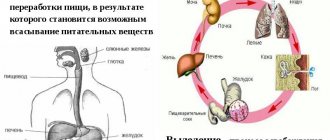Every woman knows that nausea is a sign of pregnancy. It may appear shortly before a missed period and go away on its own after a couple of weeks. Or cause prolonged discomfort to the woman, creating a threat of termination of pregnancy. There are cases that nausea occurs in later stages and often accompanies various complications of pregnancy. When nausea will appear (and whether it will appear at all) no obstetrician-gynecologist can answer, because in this matter everything is very individual. Let's find out the causes of nausea during pregnancy, when it appears, and how to get rid of it during pregnancy.
When does nausea start during pregnancy?
There is no clear time frame for the development of nausea during pregnancy (toxicosis). Some women experience such a terrible symptom within 2-3 weeks after conception, while others do not feel such discomfort at all. Average statistical information states that nausea in most cases occurs in the first trimester from 5 to 12, less often until the 16th gestational week.
Normally, regardless of the cause and time of onset, toxicosis should subside by the end of the 12th week. By this time, the hormonal “storm” in the female body ends and it is already fully adapted to its new status. Gradually, the woman experiences relief and begins to enjoy her pregnancy.
Folk remedies for the treatment of vomiting
List of popular products for use at home:
- Dried peppermint - one tablespoon per 250 ml of boiling water. Leave for 2 hours. Take 3-4 times a day;
- Dill seeds - boil 5 g in 250 ml of water. Take once, immediately after an attack of vomiting;
- Melissa - dry ground herb (30 g) pour a glass of hot water. Leave for 4 hours, then drink in small portions 4 times a day;
- Three-leaf watch - pour dry grass 1:4 with water. Leave for 8 hours. Take in small portions throughout the day;
- Soda - dissolve one teaspoon of baking soda in 250 ml of water. Drink once.
Causes of nausea during pregnancy at different stages
Although many women have heard about nausea during pregnancy, most of them do not quite understand why it happens to them. This mechanism often involves several factors: hormonal changes, heredity, and the reaction of the nervous and endocrine systems to pregnancy. Each of these factors may change at different stages of pregnancy.
The mechanism of development of nausea in early pregnancy
Nausea, although a sign of pregnancy, does not always indicate it. Normally, in response to fertilization, morning nausea occurs, an abnormal reaction to familiar aromas and tastes, and excessive salivation. Nausea during early pregnancy is a variant of the physiological norm and does not require an urgent visit to a gynecologist unless there is a sharp deterioration in the pregnant woman’s condition.
On a note! Statistics show that toxicosis is much more severe and lasts longer in women with a history of abortion, endocrine diseases and inflammation of the reproductive organs.
- What causes nausea in the first half of pregnancy? The main role in the scenario for the development of nausea is played by hormonal changes in the body, which begin immediately after fertilization of the egg.
During this period, progesterone is rapidly synthesized, and prolactin levels jump. This interaction of these hormones causes nausea and its severity depends on the amplitude of hormonal fluctuations. Often, for this reason, women experience both nausea and vomiting during pregnancy. In severe cases, the pregnant woman is hospitalized to stop vomiting and prevent dehydration.
In addition to nausea, a woman experiences pain in the mammary glands, slight dizziness, changes in appetite, and an increased psycho-emotional reaction to external stimuli. If for some reason embryo implantation does not occur, all symptoms immediately disappear.
- Constant nausea during pregnancy can be caused by endocrine disorders. Thyroid dysfunction, diabetes mellitus, and poor metabolism are provocateurs not only of nausea, but also of many serious disorders. Therefore, for a successful pregnancy, it is advisable to visit an endocrinologist even before conception.
The inherited factor plays an important role. If you find out how your mother's pregnancy went, you can predict what to expect from your pregnancy.
Most often, a woman feels sick in the morning; she may have a feeling of heaviness throughout the day, but the appearance of nausea during pregnancy in the evening is also a variant of the norm.
The next attack can be caused by certain behavior of a woman. It could be:
- Sudden rise after waking up.
- Long break between meals.
- Lack of oxygen (being in a stuffy room, transport).
- Intense aroma (during cooking, inhaling perfume, during passive smoking).
Important! Early moderate toxicosis is a sign of a normal pregnancy. If such a symptom disappears suddenly, you need to consult a doctor to rule out a frozen pregnancy.
Why does nausea occur in late pregnancy?
- Nausea that occurs after the second trimester is not physiological toxicosis. Its appearance is more associated with physical changes in the body, namely with a strong enlargement of the uterus, displacement of internal organs, compression of the gastrointestinal tract and gall bladder. Thus, nausea during pregnancy in the 2nd and 3rd trimesters is caused by inadequate function of the digestive system, decreased peristalsis, and constipation.
- In addition to nausea, a woman has other, no less uncomfortable sensations. With poor nutrition and sudden bending, mass from the stomach is thrown back into the esophagus. A mixture of hydrochloric acid and food debris burns the mucous membrane, causing an attack of heartburn and nausea. This phenomenon is called reflux esophagitis, and consists of incomplete closure of the esophageal sphincter. Most often, heartburn and nausea after eating during pregnancy occurs at 27-28 weeks.
- The pathological cause of nausea in late gestation is preeclampsia. More often it develops at 37-40 weeks of pregnancy. In addition to nausea, the woman has hypertension, uncontrollable vomiting, headache, swelling, renal failure, photophobia and painful perception of sounds. This condition is very serious and requires hospital treatment. Artificial stimulation of premature labor is often carried out to save the woman’s life.
Important! If unpleasant symptoms appear, it is better to consult an obstetrician-gynecologist. He will be able to determine what kind of nausea during pregnancy it is: physiological or pathological.
- Another cause of nausea in the last weeks of gestation may be hunger. A woman finds it difficult to eat a lot of food due to feelings of bloating and heaviness, and she begins to limit herself. As a result, hunger provokes severe nausea and leads to loss of strength. Eating split meals every two hours and adhering to a strict diet helps to avoid this situation. All food for nausea during pregnancy should be boiled, low-fat, but at the same time nutritious and fresh. After the baby's head drops before birth, all these terrible symptoms disappear.
Indications for use of tablets
Pregnant women should not abuse medications. It is better to take them only as prescribed by a doctor, because... The pills have side effects, many of which are contraindicated for pregnant women. But the health of the mother and child is at risk; you should not refuse the medications recommended by the doctor. So, with moderate or severe toxicosis, treatment is necessary. It manifests itself with the following symptoms:
- painful vomiting, which is a constant worry; because of it, the pregnant woman cannot eat normally, she loses her appetite and is rapidly losing weight;
- apathy and drowsiness appear, it becomes difficult to work and do even simple chores around the house;
- the skin becomes pale, there are bruises under the eyes, there is a gray coating on the tongue, the breath smells of acetone;
- The temperature is low, up to 37.5 °C.
If these symptoms appear, you must report them to the doctor who is caring for your pregnancy. He will prescribe additional tests, and after receiving the results, he will tell you what medications you need to take or refer you to the hospital.
Nausea during pregnancy as a symptom of various diseases
Nausea cannot always be caused by pregnancy itself, because such a woman’s condition does not exclude the development of other pathologies.
Causes of nausea other than pregnancy:
- Gastritis or ulcerative formation in the stomach - along with nausea, a woman will have vomiting after eating and pain in the stomach.
- Intestinal infection - poisoning also causes nausea in a pregnant woman. Symptoms such as vomiting, diarrhea, abdominal pain, chills, nausea, and fever during pregnancy will help distinguish the disease.
- Pyelonephritis - inflammation of the kidneys is accompanied by sudden vomiting, nausea, pain in the back or lower abdomen, and increased body temperature.
- Appendicitis is not uncommon in the second half of pregnancy, caused by compression of the intestines. Symptoms: severe nausea during pregnancy, intense pain in the right side, upset stomach.
- Hypothyroidism is hypofunction of the thyroid gland. The disease causes nausea, drowsiness, fatigue, hypotension, and constipation. A very dangerous condition that, without treatment, causes cretinism (severe developmental delay) in the baby.
- Helminthiasis - helminthic infestation is often the cause of groundless nausea, headaches, and skin rashes.
Definition of the concept
Toxicosis in medicine is considered to be a pathological condition that occurs due to exposure to toxic substances on the body. However, the broader meaning has long been lost. By the word “toxicosis,” most people mean that the expectant mother is feeling unwell.
According to statistics, 70% of pregnant women are familiar with the manifestations of toxicosis. The development of the fetus is accompanied by poisoning of the mother's body with harmful substances. The appearance of symptoms indicates that the body cannot cope with the restructuring caused by the “interesting situation.” The pathological condition manifests itself:
- nausea;
- excessive salivation;
- gagging/vomiting;
- general malaise;
- drowsiness;
- dizziness.
Symptoms appear with varying intensity. Against this background, weight loss is observed - moderate or significant.
Nausea in early pregnancy: what to do
If the nausea is not severe and the woman is able to tolerate it without treatment, doctors recommend adhering to the following rules to relieve nausea during pregnancy:
- Take frequent walks in the fresh air.
- Eat small and often meals, eating only fresh and healthy foods.
- Get proper rest and don’t forget to do light exercises for pregnant women.
- Eliminate stress and unfavorable working conditions.
- Drink enough clean water.
- Avoid strong odors and sounds.
- Do not eat hot or cold foods.
In the case of prolonged and pronounced toxicosis, the woman undergoes blood tests and is prescribed appropriate treatment. It is prohibited to take any anti-nausea pills during pregnancy before meeting your doctor.
How to get rid of nausea during pregnancy with medications
To relieve toxicosis, various drugs can be prescribed:
- Antihistamines are indicated in case of allergic manifestations.
- Antiemetic drugs suppress the activity of brain receptors that are responsible for the gag reflex.
- Hepatoprotectors - support liver function, relieve general intoxication.
- Eneterosorbents - cleanse the intestines and blood from breakdown products of harmful substances.
- Vitamin complexes - to stabilize immune function and maintain normal development of the baby.
- Detoxification drugs - in case of severe intoxication.
In the early stages, the prescription of most medications can be dangerous for the fetus. But not all drugs are dangerous for a pregnant woman. The following medications are successfully used to treat toxicosis:
- Chophytol is a plant hepatoprotector with a choleretic effect. The active substance is artichoke extract. Chophytol is taken before meals for toxicosis, all forms of gestosis, bile outflow disorders, pathological swelling, to speed up metabolic processes. Allowed at all stages of gestation. Treatment course is 3 weeks, 2 tablets three times a day.
- Cerucal is a tablet against nausea during pregnancy based on the substance metoclopramide. Blocks the passage of vomiting signals from the brain to the stomach. Produced in injection and tablet form. During pregnancy, it is prescribed only for indomitable vomiting, which cannot be stopped by other methods. Cerucal is not taken systematically, but only to stop vomiting. It is better to do this between meals. The remedy is indicated only from the second trimester, and in the first 14 weeks its use is possible only in case of very acute toxicosis and the threat of miscarriage. Therefore, before prescribing Cerucal, it is better to try to cope with toxicosis using more gentle methods that help with nausea during pregnancy.
- Polysorb is an enterosorbent that has a detoxifying effect. It is completely absorbed into the bloodstream and cleanses the blood without having any effect on the fetus. The active substance - silicon dioxide - is an excellent absorbent. It absorbs toxins, harmful compounds, pathogenic microorganisms, rotting and fermentation products in the intestines. The therapeutic effect and a noticeable improvement in a woman’s condition is observed within 7-10 minutes after taking Polysorb. It is considered the safest remedy for nausea during pregnancy.
- Essentiale Forte is a hepatoprotector containing soy phospholipids in a bioavailable form. During the gestational period it is accepted without restrictions. The drug restores hepatocytes, reduces attacks of nausea, and has a sedative effect.
How to cope with nausea during pregnancy using folk remedies
Simple traditional medicine recipes will help you get rid of nausea without drugs. During pregnancy, the following methods can be used:
- Mint decoction - prepare a weak drink (maximum 1 teaspoon of dry raw material per glass of boiling water) and take small sips throughout the day. You can also use a fresh mint leaf, which you simply rub between your fingers and smell. But peppermint essential oil is prohibited during pregnancy, as are all essential oils.
- Valerian infusion - relieves signs of toxicosis, improves digestion, and soothes. You need to pour ½ tsp. valerian root with a glass of boiling water, leave, strain and drink a tablespoon throughout the day.
- Herbal tea - aromatic tea will help stop gagging and reduce nausea. You need to take two parts each of mint leaves, yarrow and marigold inflorescences, as well as one part of valerian root. Then 2 tbsp. l. pour 400 ml of boiling water over the mixture, leave and drink 50 ml every 2-3 hours.
Sometimes, due to individual intolerance, a woman cannot take herbal decoctions for nausea during pregnancy. What to do in such a situation? Regular foods will come to her aid, the consumption of which also reduces nausea.
Throughout the day, you need to eat one or more products from the list often, but in small portions (the choice depends on the preferences of the pregnant woman):
- warm water with honey;
- fresh fruits (carrots, sweet and sour apples, cabbage stalks);
- cranberry or lingonberry juice;
- ginger tea with lemon;
- citrus;
- tomato, blackcurrant, orange juice;
- pumpkin (pulp, juice, puree, seeds);
- any berries;
- homemade crackers or store-bought cereal breads;
- rosehip decoction (can be with honey).
Nausea is an unpleasant but temporary condition of a pregnant woman. You don’t have to courageously endure another bout of vomiting and suffer from debilitating nausea, because you can easily ask your doctor what you can do for nausea during pregnancy and try to improve your well-being. The main thing is not to self-medicate and follow the advice of your gynecologist.
Types of toxicosis
There are three degrees of the pathological phenomenon. The classification is based on the intensity of manifestations:
- Slight nausea and vomiting occur no more than five times a day. Weight loss does not exceed three kilograms.
- Vomiting up to ten times a day. A pregnant woman loses about five kilograms in two weeks. The pressure may “jump.”
- Frequent vomiting attacks - more than ten times a day, in especially severe cases up to 25 times. There is an increase in temperature, increased heart rate, and significant weight loss - 10 or more kilograms. A distinct smell of acetone may be felt from the mouth, and the amount of urine decreases sharply.
The third degree of the pathological condition is dangerous for pregnant women; pregnant women may experience a miscarriage against the background of a sharp and severe deterioration in health. Severe symptoms require immediate medical attention. Sometimes termination of pregnancy is indicated to save the patient's life.











